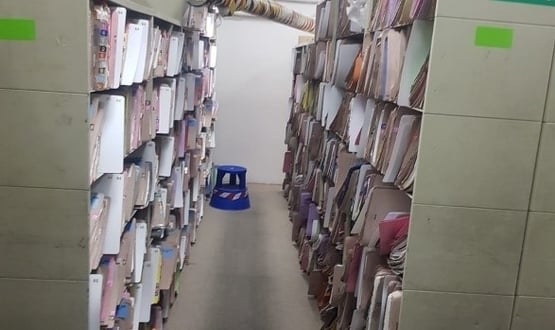Imperial College goes live with electronic document management system
- 3 September 2019

Imperial College Healthcare NHS Trust has gone live with an electronic document management system (EDMS).
The trust has selected IMMJ Systems Mediviewer, which allows hospitals to scan, index and archive paper medical records and access them through a user interface.
MediViewer will also integrate with the trust’s Cerner electronic patient record (EPR) system to provide a complete view of a patient’s health record.
Imperial is one of the 16 Global Digital Exemplars (GDE), a group of reference sites which have been given national funding to accelerate digitisation.
Linda Watts, GDE programme manager and head of health records at the trust, said: “We’ve had very positive feedback from our clinicians. The technology is intuitively easy to use and its speed means response time between pages is almost instantaneous. It provides a greater oversight of case notes, regardless of location, ensuring that the documents can be found easily.
“Our ambition at Imperial is to get to zero paper records. We have a five-year strategy to achieve this and we’re now very confident about our progress.”
Watts joined Imperial in 2016 with, her main duty being to manage the digitisation of the trust’s patient records.
The task involved scanning more than 350 million documents – which is why the trust implemented MediViewer.
Watts added: “It’s [MediViewer] a software-as-a-service system, which we specifically wanted because it avoids infrastructure investment and is natively designed for scalability and ease of access.
“It’s accessible via our HSCN networks and is hosted by UKCloud, a specialist provider of hosting services to the UK public sector. So it meets our security and data sovereignty requirements.”
Jamie Hall, head of sales for IMMJ Systems, said the implementation of MediViewer represented “the largest cloud-based deployment of an EDMS system by one of the largest trusts in the country.”
“This is a significant contract for IMMJ Systems, and a deployment we hope will change the landscape of existing use of EDMS technology across the NHS,” Hall said.
“As a competitive procurement we were in the running vs all of the existing major suppliers but were able to offer the most technically advanced solution on the market. With a unique product architecture and usability that stood MediViewer apart from all existing products”
“A key requirement was to be able to integrate with the trust’s Cerner EPR. This has been achieved via an embedded window within the EPR system, achieved by the ICHT team supported by the IMMJ technical team.”
“Due to our OpenAPI’s and use of open source technology and commitment to interoperability the ICHT team were able to deliver this integration seamlessly and quicky with the use of their in-house integration experts.”





1 Comments
I’m not convinced this is a complete solution since patient notes are scattered all over the place and indexing is not simple. How do you answer the query ‘what activities were gone though for Mr Jones’ diabetes’ . Mrs Jones has just died in mysterious circumstances.
If she hadn’t died, how would you tie in subsequent medical activities in with the old ones – she has 12 different ailments?
This is meant to be constructive in a ‘devils advocate’ mode using the queries I asked myself in thinking about this after reading that the NHS will be paperless by 2018, then 2020….
Comments are closed.